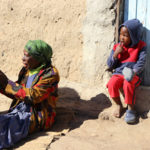PREVAILING SITUATION IN BANGLADESH
Bangladesh faces increasing vulnerability in coastal agriculture due to climate extremes, including intensified flooding, cyclones, and soil salinity, which threaten food security. Embracing climate-resilient farming practices is crucial to safeguarding farmer livelihoods and maintaining a stable food supply in the face of these challenges. Cultivation of salt-tolerant crops with efficient irrigation methods is practiced by farmers to adapt agriculture to changing conditions. However, adoption remains uneven, indicating a need for more robust support to expand these practices across the country’s most at-risk areas.
BANGLADESH SUNDARBAN

Similar to its Indian counterpart, the Sundarban region of Bangladesh, the selected study area in Bangladesh, is increasingly threatened by climate change, with rising sea levels, erratic rainfall, and intensified cyclones posing significant risks to agricultural productivity and food security. Adopting climate-resilient agriculture is essential to protect the livelihoods of local farmers and sustain the delicate ecosystem in this unique region. Currently, practices such as sustainable aquaculture and integrated farming systems are implemented by farmers in and around the Sundarban to enhance resilience against climate impacts. However, the adoption of these practices remains limited, highlighting the need for stronger support and resources to effectively implement climate-smart strategies throughout the Sundarban.




